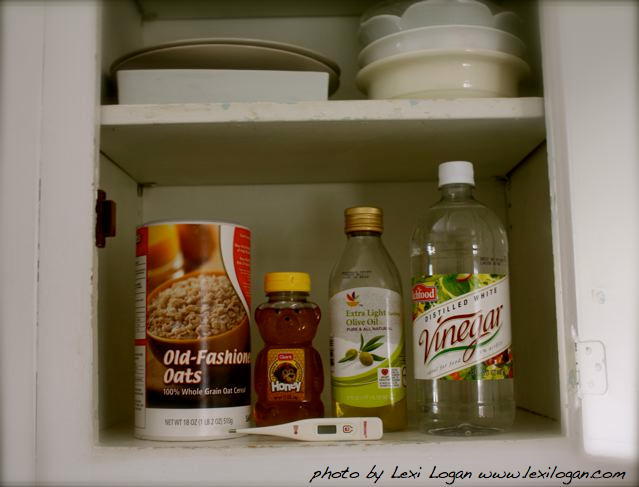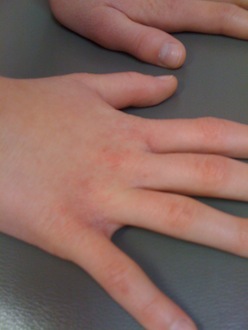The natural medicine cabinet in your kitchen
You may not think of your kitchen as a convenient pharmacy, but parents used common kitchen items successfully to treat various maladies long before CVS and Walgreens were invented.
Crisco– May not be healthy to eat, but smeared on skin, it’s an old fashioned but effective treatment for eczema or dry skin.
Oatmeal– Crush and put into the end of a hosiery sock. Float the sock in the bathtub for a natural way to moisturize skin.
Olive Oil–
- Put a couple drops into the ear three times a day to loosen ear wax (don’t put in if your child has a hole in their ear drum eg. myringotomy tubes).
- For cradle cap, rub into your baby’s scalp and use your fingernail or a soft brush to loosen the greasy flakes.
- Also use to kill lice. Work the oil through the scalp, tuck hair into a shower cap and wash off in the morning. Although studies are unclear on how well this method works on lice, it certainly is worth a try.
White vinegar-If swimmer’s ear is suspected, mix rubbing alcohol one to one with vinegar and drop a couple drops in the ear to stop the swimmer’s ear from progressing (don’t put in if your child has a hole in their ear drum eg. myringotomy tubes).
Ginger– Boil ginger to make a tea to take the edge off nausea
Honey– Shown to soothe coughs-give a teaspoon of dark (buckwheat, for example) honey three times a day. However, NEVER give honey to a child who is younger than one year of age because it may cause infant botulism
Lemon– An old singer’s trick—combine lemon juice with honey in tea to alleviate hoarseness
Salt– Mixed into lukewarm water, gargling with salt water will help ease sore throat pain
Baking soda:
- Mix with water to make a paste to help soothe itchy skin, from maladies such as poison ivy .
- Can also be mixed with water to make toothpaste if you run out of your usual minty whitener.
- Another use of baking soda: one part baking soda with 4 parts corn starch makes a natural underarm deodorant.
Sugar: Mix sugar into weak tea (or your ginger tea from above) and give small amounts frequently to soothe your older child’s nausea and help rehydrate after vomiting.
Ice: Ice not only decreases swelling when applied to injuries, it can also be used to combat the itch of bug bites and poison ivy.
Kitchen sink: This is an excellent place to wash any cut, scrape, or bleeding wound under running water with soap. Immediately after a burn, rinse the burned skin under cold water for several minutes to limit the extent of the heat injury. Contrary to popular lore, DO NOT put butter on a burn. You may, however, put butter on your toast. In small amounts.
Naline Lai, MD and Julie Kardos, MD
©2015 Two Peds in a Pod®, revised from 2011

